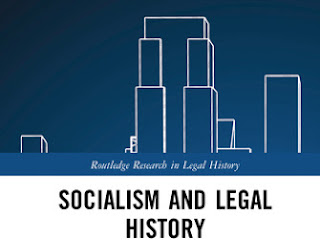Alan Munslov
Tarihe dair (objektif ampirist bir uğraşın kaydı olmaktan çok oluşturulmuş bir anlatı olarak) yapısökümcü görüş, yüzyıl sonu yaygın postmodern entelektüel bağlamın bir sonucudur.{21} Bu bağlam, Fransız kültür eleştirmeni
Jean-François Lyotard’ın, 1984 yılında yayımlanan son derece etkili The Postmodern Condition [Post-modern Durum] adlı kitabında tanımladığı,
bilimsel bilgiyi edinmekle anlatının işleyişi arasındaki sıkıntılı ilişki üzerine odaklanan bir bağlamdır. Anlatıyı tanımlayan Lyotard, anlatının kültürel formasyon ve aktarımın karakteristik ve özsel özelliği olduğunu ileri sürmüştür.{22} Lyotard anlatının iktidar kullanımıyla ilişkili olduğu konusunda Foucault’yla hemfikirdir. Lyotard’a göre, toplumsal olarak benimsenmiş belli bir dizi kural ve pratiğe göre yapılanan kendini meşrulaştırma türü, konuşmacının ya da yazarın o toplum içindeki otoritesini kurar ve o toplumun öz kimliğinin karşılıklı olarak pekiştirilmesi işlevini görür.{23} Batılı bir kültürel pratik olarak tarih, öz kimliğimizin yitiminin tehdidi altındadır. Bu arada, kendilerince sağduyulu, bilimden esinlenen, nesnel ampirist paradigmalarına ilişkin gerçekçi inançlarına saplanıp kalmış tarihçiler (deliller, toplumsal teorileştirme ya da sadece önyargı gibi teknik sorunların bu bilgiye erişmeyi engellediğini fark etseler bile) doğru tarihsel bilgilerinin izini sürerken “kırılmalar" olarak gördükleri şeye katlanırlar.
Bilim, on sekizinci yüzyıldan yirminci yüzyılın başlarına kadar kendisini destekleyip koruyacak ve meşrulaştıracak güçlü, toplumsal olarak kurgulanmış siyasal ve felsefi “büyük” anlatılara (Lyotard buna üst-anlatılar adını verir) bağlı olmuştur. Epistemolojik hiyerarşi içinde birinci sırayı alan büyük ya da üst-anlatı (Fransız Devrimi’nde odaklanan) on sekizinci yüzyıl Aydınlanma hareketiydi; bu hareket monarşik despotizm ve feodalizmden kurtuluş yoluyla insanın özgürleşmesini vaat etmiş; bunu, belli bir oranda mükemmelleştirilebilir gelecek fikrine yol açan (Hegel felsefesinde işlendiği biçimiyle) insan bilincine ilişkin on dokuzuncu yüzyıl anlatısı izlemiştir. Sonuç olarak, Lyotard’a göre bilimsel bilgi, kurtuluş ve özbilinç olmak üzere diğer iki üst-anlatıya müracaat etmeksizin doğruluğunu kanıtlayamaz. Bilim bir yanda kendi toplumsal kabulü ve entelektüel ve kültürel meşruluğu için anlatıya muhtaçken, öte yanda anlatıyı meşru biliş tarzının (yani, bilimsel tarzın) bir formu olarak kabul etmez.
Bu cümleden olmak üzere, bilim gibi tarih de bugün bir meydan okuyuşla karşı karşıyaysa, bunun nedeni kısmen geçmişle bağlantı kurma yetimize duyduğumuz güvenin kaybına yol açan yirminci yüzyılın çarpıcı gelişmeleri ya da Keith Jenkins’in dediği gibi, “modernlik dediğimiz toplumsal hayat deneyinin... genel başarısızlığıdır.’{24} Bilimsel nesnellik ve geçmişi kavrayarak ilerlemeyi açıklama gibi üst-anlatılar bir meydan okumayla karşı karşıyadır. Faşizmin yükselişi, iki dünya savaşı, sömürgeciliğin sona erişi, muazzam teknolojik değişimler, çevresel ve ekolojik felaket, enformasyon patlaması, sömürgen ve denetimsiz küresel kapitalizmin gelişmesi, beraberinde getirdiği “gelişmiş" Batı’da emeğin metalaşması ve dünyanın gelişmemiş bölgelerinde emekçi kitlelerin giderek yoksullaşması (insanlık durumunun özbilinçli iyileşmesi ve bireysel özgürlük yönündeki tersine çevrilemez bir eğilim olarak görülen şeyin temellerini oluşturan) hem bilim hem de tarihi meşrulaştıran üst-anlatıların yıkılmasına yol açmıştır.
Bütün bunların bir sonucu olarak, yirminci yüzyıl sona ererken, hem büyük hem de küçük anlatılar, inançlar, tutumlar, değerler, disiplinler, toplumlar ve bizatihi anlam göründüğü kadarıyla artık parçalanmakta ya da parçalamaktadır. Gelecek uğursuz bir belirsizlikten başka bir şey vaat etmiyor. Artık kimsenin liberalizm, bilim, Marksizm, sosyalizm; ya da ister fiilen olduğu haliyle geçmişin keşfini isterse ilerlemenin kaçınılmazlığını vurgulayan bir tarih görüşü gibi büyük anlatılar hiyerarşisine inanabileceğini hayal etmek pek mümkün görünmüyor. İşte Lyotard’ın, üst-anlatılara inançsızlık olarak postmodern durum adını verdiği şey budur. Artık biz aklın kaynağı ya da ahlâki veya entelektüel kesinliğin öğretmeni olarak eski, modernist tarih duyusunu yitirdik. Bunun anlamı şudur: Tarihin ne olduğuna dair herhangi bir çalışma kendi kültürel ve toplumsal bağlamı içindeki bir çalışmadan başka bir şey olamaz. Bir edebiyat formu olarak tarih; müzik, drama ve şiir gibi bir kültürel pratiktir. Bir metin ya da bir dizi metin (deliller ve yorumlar) olarak tarih, ancak ve ancak, postmodern tarih felsefecisi F. R. Ankersmit’in 1980 sonlarında söylediği gibi, “bir bütün olarak günümüz uygarlığı'{25} içine yerleştirildiğinde anlaşılabilir. Bizim açımızdan bu, hem tarihin içeriğini hem de anlatı formu içinde yorumunu araştırmak anlamına gelir. Kendi yaptıklarım üzerine de düşünen bir tarihçi olarak, ben, yazılı tarihi toplumsal olarak kurulmuş anlatı biçiminde bir temsil/tasavvur olarak tanımlıyorum ve bunun eksiksiz ya da objektif olarak temsil/tasavvur etmekte başarısızlığa mahkûm bir anlatı olduğunu kabul ediyorum. Yani, geçmişi ancak ilk önce bir disiplin olarak tarihin doğasını irdeleyerek araştırabiliriz.
SONUÇ
Tarihin edebi-kültürel bir pratik olarak tanımlanması, tarihi günümüzün postmodern bağlamı içine yerleştirir. Bu bakış açısından, yazılı tarihin bu dağılması tarihe ayrılmış boşluğu doldurmayı yine de sürdürecektir. Tarih yazımı geçmişe dair bilgimizin dışa taşması kadar bizim ona karışmamızı da iyi örnekliyor. Ne kadar çok tarih varsa, ona inanmayan o kadar tarihçi vardır.{26}
Yapısökümcü bilincin verdiği mesaj, geçmişin asla sabitlenemeyeceğidir; ister epistemolojisi, delilleri ele alışı, açıklamaları kurgulaması açısından, isterse de açıklayıcı anlatı formumuzun özgün doğası açısından olsun. Bu postmodern ya da yapısökümcü tarih, dolayısıyla yapısökümcü ya da dilsel hamle olarak bu tarihin çeşitli anlatımları, her yönüyle geleneksel paradigmaya meydan okur. Yapısökümcü tarih, geçmişi muhtemel anlamları açısından irdelenecek bir metin olarak ele alır ve her şeyden önce modernist tarihçilerin, onları delillerle yorum arasında nihai tekabüliyetin geçerliliğine ve sonuçta -kaynakların kendi başlarına konuşmalarına imkân vererek- (mutlak doğru olmasa bile) ahlâki tarafsızlık, çıkarsızlık, nesnellik, sahicilik gibi amaçlarını mümkün kılmaya yetecek kadar temsil/ tasavvur şeffaflığına inanma eğilimine sokan içi boş yöntemsel amaçlarını ve varsayımlarını açığa çıkarır.
Bugün bu ampirist kesinlik, doğruluk nosyonlarına ve toplumsal ve ahlâki bakımdan bağımsız bir duruş noktasına kuşkuyla baktığımızdan dolayı, geleneksel gerçekçi anlamda tarih yerine artık geçmişte ve geçmiş hakkında olası anlatısal temsiller/tasavvurlar söz konusudur ve bunların hiçbiri fiilen olduğu haliyle geçmişi bilme iddiasında bulunamaz. Dört anahtar soruyu daha ayrıntılı ele alarak şimdi bu iddia üzerinde duracağım.
....
{21} Peter Novick, That Noble Dream: The ‘Objectivity Question’ and the American Historical Profession (Cambridge, Cambridge University Press, 1988), s. 523.
{22} Jean-François Lyotard, The Postmodern Condition (Manchester, Manchester University Press, 1984), s. 21. [Postmodern Durum. Çev.: Ahmet Çiğdem, Ara Yayıncılık, 1990].
{23} Bu, edebiyat eleştirmeni Robert Young'ın “Batı" kavramına ilişkin yapısöküm çalışmasında değindiği bir noktadır: White Mythologies: Writing History and the West (London, Routledge, 1990), s. 1 -20.
{24} Jenkins, On ‘What is History?', s. 6.
{25} F.R. Ankersmit, ‘Historiography and Postmodernism', History and Theory, Cilt 28, No. 2, 1989, s. 137-153.
{26} Ignacio Olabarri, “‘New' New History: A Langue Duree Structure”, History and Theory, Cilt 34, No. 1,1995, s. 1-29.
Tarihin Yapısökümü, Alan Munslov, Kitabın özgün adı: Deconstructing History (Routledge/1997), Ayrıntı Yayınları, 2000, Giriş Bölümü.






